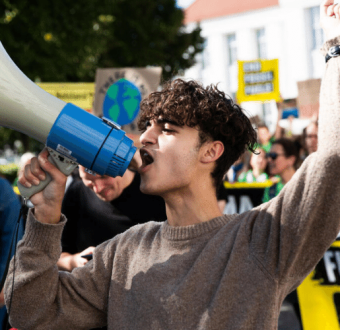Step One: Russia Invaded Ukraine
We’ll start with the reason these sanctions exist in the first place. In early 2014, Russia invaded the Ukrainian territory of Crimea with the intent to annex the region.
The invasion sparked swift international backlash. In March 2014, President Obama imposed sanctions that included prohibiting certain Russian officials from entering the United States and suspending various trade deals.
Then in April — after Russia went ahead with the invasion anyway — the Obama administration banned business transactions with seven Russian officials, including a man named Igor Sechin.
Step Two: This Becomes Even More About Oil
Igor Sechin is the CEO of Rosneft, a state-owned Russian oil company. In 2011 and 2012, he signed agreements with ExxonMobil that gave the latter rights to drill in parts of the Russian Arctic (shown in this map).
But after the Crimea sanctions, the two were stuck. Exxon couldn’t continue in its partnership with Rosneft without violating U.S. foreign policy and Rosneft didn’t have the capacity to proceed on its own. Exxon CEO Rex Tillerson lobbied extensively against the sanctions, but to no avail.
Exxon and Rosneft remained in this holding pattern for the rest of the Obama administration, with sanctions costing Exxon $1 billion in 2015 as a result.
Step Three: The CEO of Exxon Becomes Our Secretary of State
Whereas Rex Tillerson wasn’t able to convince the Obama administration to change its stance, he did manage to cozy up to Trump. While Trump hasn’t lifted the sanctions just yet, he did make Tillerson his Secretary of State.
That means that Tillerson has significant influence over whether Trump will lift the Crimea sanctions, which he’s expected to do via executive order. If that happens, Exxon and Rosneft can pick up right where they left off, likely bringing massive profits to both companies.
Tillerson claims to have broken his financial ties to Exxon now that he’s Secretary of State and said he would recuse himself from any State Department decisions concerning Exxon for his first year on the job. But since his confirmation by the Senate, we’ve heard nothing on how that will be enforced or even disclosed.
Step Four: Scandal
The Steele dossier — the same unconfirmed document published by Buzzfeed that told the world about Trump’s alleged … sexual fetishes (the less that’s said the better) — also includes some scandalous intel on Rosneft if it’s proven to be true.
According to the dossier, Igor Sechin had a secret meeting with Trump aide Carter Page in July 2016. In the meeting, Sechin pushed for the Crimea sanctions to be lifted so that Rosneft and Exxon could get on with plundering the Arctic for oil. He offered Page and his associates the brokerage of a 19 percent stake in Rosneft in return. Page was non-committal, but did say that if Trump were elected he would lift the sanctions.
Now, the integrity of this dossier has come under fire from all sides, and its contents should be treated with skepticism until more details emerge. But what happened next we absolutely know to be true — a group of investors bought a 19 percent stake in Rosneft.
In December 2016, Rosneft did indeed sell a 19 percent stake in the company, but Reuters reports that it’s not totally clear who bought it because part of the deal was routed through Cayman Islands front companies.
Two months later, the same day Tillerson was confirmed a Secretary of State, Congress gutted a major oil industry anti-corruption rule — a rule that Tillerson had argued against specifically because it would complicate Exxon’s business with Russia.
Step Five: The Writing on the Wall
Even if you discount the scandalous bits from the Steele dossier, there’s a lot to be concerned about here.
For one, it’s completely unacceptable that Congress is rolling back oil industry transparency rules at the same time it confirms an oil CEO as Secretary of State. On top of that, the potential lifting of the Crimea sanctions would give Exxon the chance to drill for Arctic oil that is simply unburnable if we want a livable planet.
What does it all mean? It means the writing is on the wall for the oil industry.
Oil companies have an unsustainable business model in which they constantly need to be finding and drilling new sources of a dirty, finite fuel that fewer and fewer people want. At this point, using the power of U.S. foreign policy (ahem, Tillerson) to stave off the day of reckoning is one of the only options they have left to stay afloat.
Trump is prepared to do everything he can to put the oil industry on life support, but he can’t stop the clean energy revolution.
Senior Research Specialist Tim Donaghy also contributed to this post.


